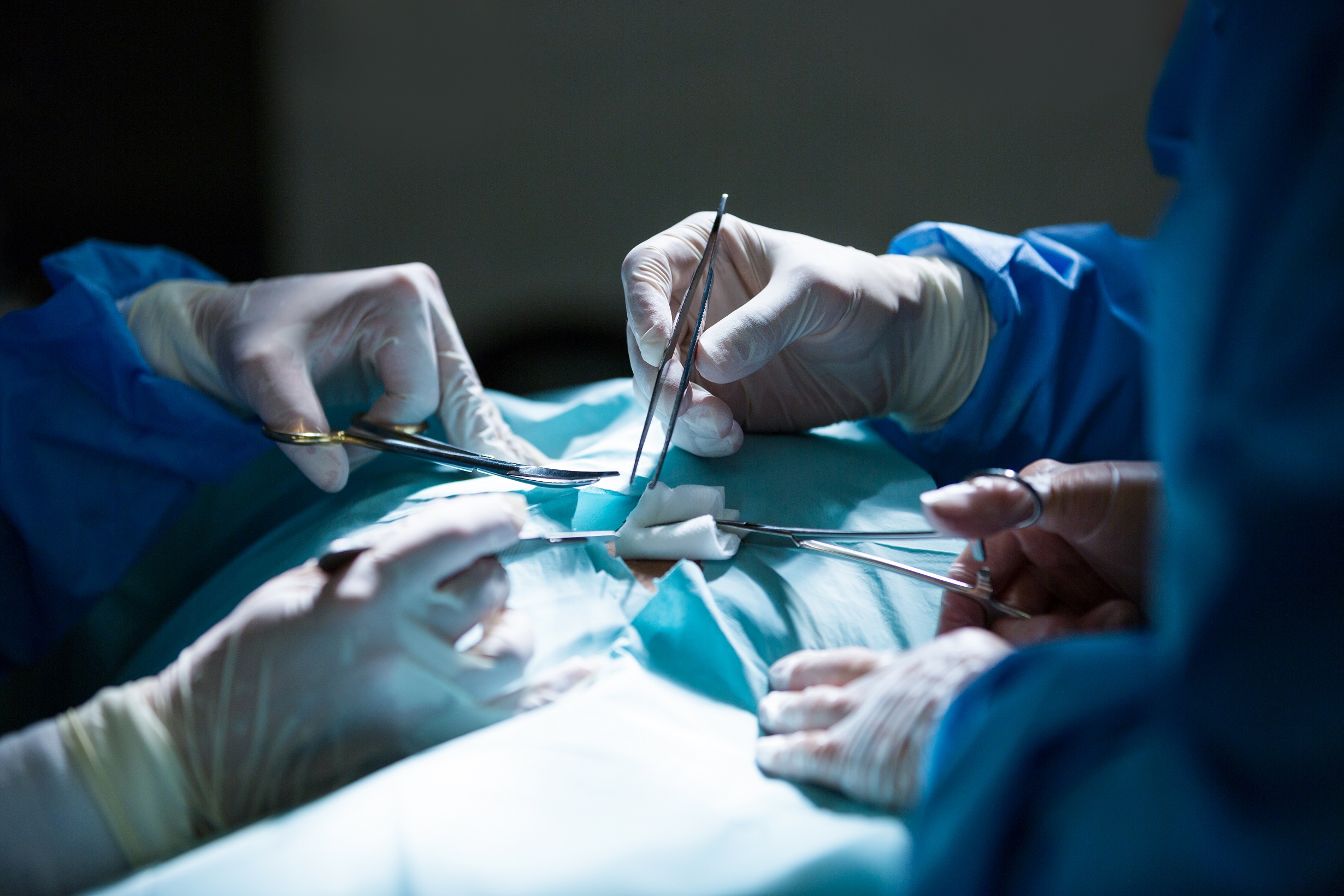Cardiology treatment options
Cardiovascular (heart) surgery
Once initial cardiac tests have been carried out the results may indicate that a surgical intervention is needed. Heart surgery improves how the heart works and can correct problems that a patient may have been born with or that have developed over time. These problems can be structural (including blockages) or a heart rhythm issue. The kind of surgery needed will depend on the issue that has been identified.

What is heart surgery?
Heart surgery is complex and requires the specialised expertise of cardiac surgeons. It can improve heart function and circulation and give patients a whole new lease on life. Consultants at Complete Cardiology refer patients to cardiac surgeons if this type of intervention is required.
People need heart surgery when they have heart problems like:
Ablation
Many heart rhythm problems are often because of regions of abnormal electrical tissue in the heart that can result in ‘short circuits’ of the normal heart beat. These can cause fast heartbeats and palpitations. Ablation procedures involve passing fine wires from the leg up into the heart to map the normal and abnormal electrical circuits of the heart. Once identified a special tube is then used to heat up and produce a controlled burn of the abnormal tissue to permanently stop it from causing further problems. In many cases, this results in a complete cure of the problem.
Cardioversion
This is a controlled electric shock of the heart used to restore the normal rhythm. It is performed under a brief full anaesthetic and is extremely safe. It is used to correct a persistently abnormal heart beat – especially atrial flutter or fibrillation. Prior to and for a few weeks after the cardioversion you will need to be treated with warfarin to thin the blood.
Coronary Angioplasty & Stenting
This is a treatment for narrowed heart arteries, which cause angina. It is performed in the same way as an angiogram from the leg or wrist, avoiding the need for open-heart surgery. A tiny balloon is used to stretch open the narrowed or blocked artery and following this a metal coil (stent) is stretched open and left behind in the artery to provide a scaffold to reduce the chance of the artery re-narrowing.
Coronary Artery Bypass Surgery (Bypass, CABG)
This is a treatment for severe narrowing in the arteries of the heart and angina. It is an ‘open heart’ operation. Either an artery from the wall of the chest or sometimes wrist and/or veins from the leg are used to ‘bypass’ the narrowed or blocked heart arteries. It is an extremely effective treatment for angina and can sometimes be lifesaving.
Heart Valve Surgery
A number of conditions can lead to severe damage of and progressive failure of one or more of the valves of the heart. The valves of the heart may then need to be replaced. This is a form of ‘open heart’ surgery. A number of different types of valve replacement are available and your surgeon will talk to you in detail about the various options. In some cases, the damaged valve can be repaired rather than the need for full replacement. Occasionally patients require a combined valve replacement and bypass operation.
Implantable Defibrillator
Some serious heart conditions can lead to very dangerous fast heart rhythms, which can lead to the patient collapsing or the heart stopping altogether. In the past, the only way to restart the heart was to shock the heart externally with electrical paddles (you have probably seen this on the T.V.). There are now, however, implantable versions of this technology, which are very similar to standard pacemakers. They constantly monitor the heartbeat but will ‘kick in’ instantly in the event of a fast abnormal rhythm to deliver an electrical pulse internally. These sophisticated devices have been proven to be life saving in a number of situations and are put in in the same way as a standard pacemaker.
Medicines (medical treatment)
Cardiology treatment options include medicine or tablet treatment which are the mainstay of treatment for a wide range of heart problems. Tablets are either used to treat the symptoms of heart disease or else to prevent the progression or complications of heart disease. Your cardiologist will explain any new medicine that may be recommended and ensure any changes to your tablets are communicated to your GP.
Pacemakers for Heart Failure
In the past, pacemakers have only been helpful in patients with abnormally slow heartbeats. However, technology has led to the development of a type of pacemaker specifically designed to improve the pumping function of the heart in those patients with a weakened heart muscle. These pacemakers have three wires (electrodes) the third of which activates the left ventricle which is the main pumping chamber of the heart. This improves the coordination and pumping of the heart and has been shown in major worldwide trials to improve symptoms and quality of life in patients with heart failure.
Permanent Pacemaker
Permanent pacemakers are used to correct abnormally slow heart rhythms. Fine electrical wires are passed into the chambers on the right side of the heart and attached to a small battery, which is buried just below the skin. The procedure is usually performed under local anaesthetic. Modern pacemakers are extremely advanced and can very accurately mimic the body’s natural heartbeat. Most patients forget they even have a pacemaker and can lead a completely normal life.
